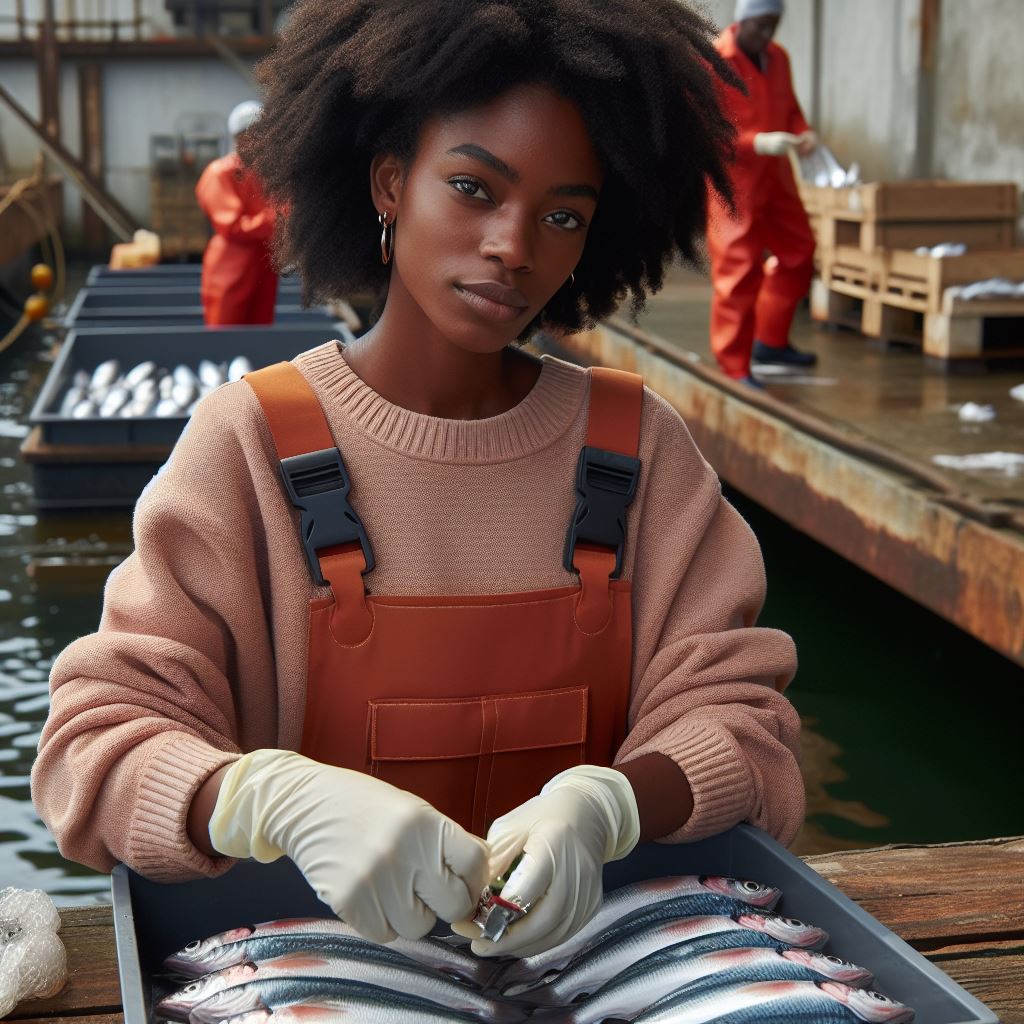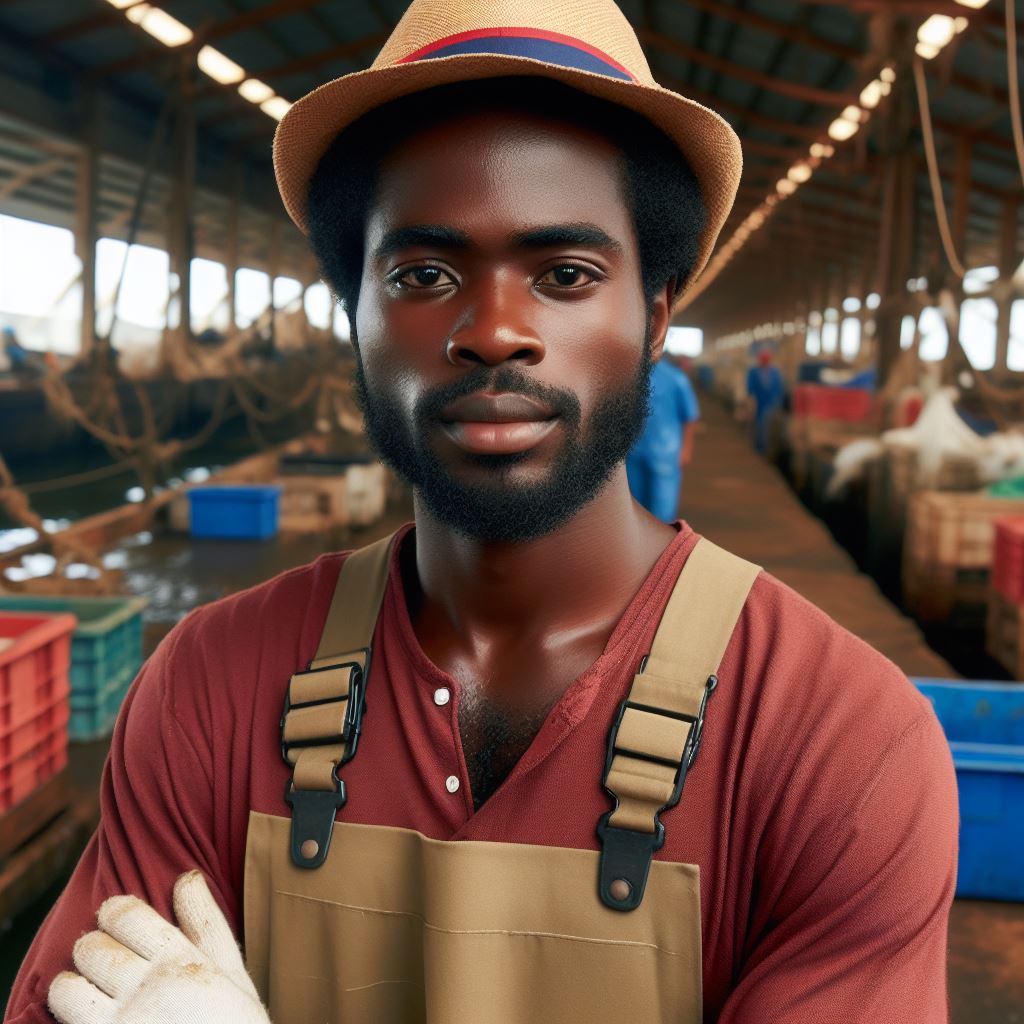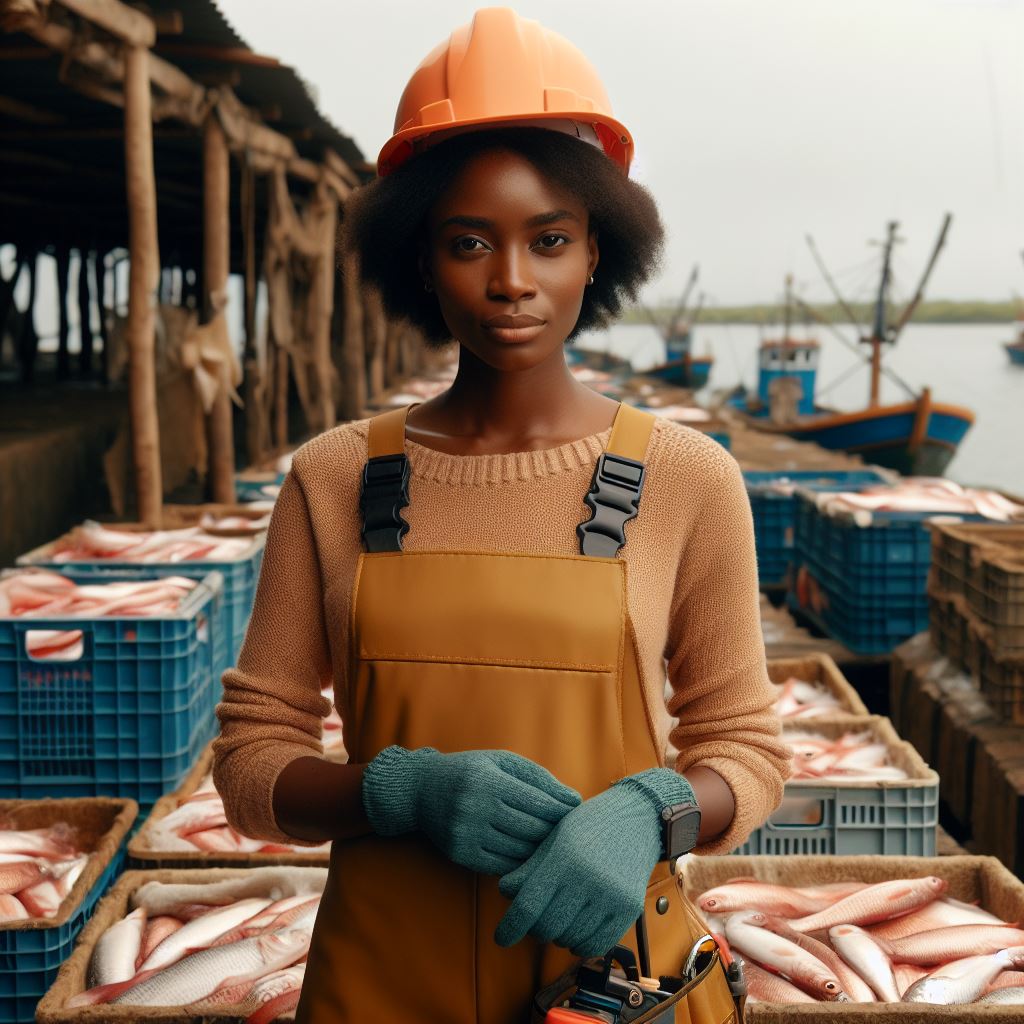Introduction
Nigerian Fisheries Graduates: The Nigerian fisheries industry plays a crucial role in the country’s economy, but its current state is challenging.
In this blog post, we aim to highlight the global impact of Nigerian fisheries graduates and their contribution to the industry.
The Nigerian fisheries industry is vital for the country’s economy, providing employment and contributing to food security.
However, it faces significant challenges such as overfishing, inadequate infrastructure, and limited access to markets.
This blog post aims to shed light on the remarkable impact Nigerian fisheries graduates have globally.
These graduates bring valuable skills, knowledge, and innovative ideas to the industry, driving positive change and influencing international fisheries practices.
Nigerian fisheries graduates are making a global impact through various avenues.
They engage in cutting-edge research, developing sustainable fishing practices, and contributing to policy formulation.
Their contributions are not limited to Nigeria but extend to other countries facing similar challenges.
Nigerian fisheries graduates actively participate in capacity building initiatives, sharing their expertise with local fishing communities.
Empowering fishermen with sustainable fishing methods enhances livelihoods and conserves fish stocks by transferring knowledge and skills.
Nigerian fisheries graduates demonstrate remarkable entrepreneurship by establishing fish farms, processing plants, and aquaculture ventures.
Their innovative ideas and business models create employment opportunities and contribute to economic growth, both nationally and internationally.
Nigerian fisheries graduates actively collaborate with international organizations, research institutions, and fellow professionals.
Through these partnerships, they contribute to knowledge exchange, promote sustainable practices, and advocate for policies that benefit the global fisheries industry.
Nigerian fisheries graduates are playing a significant role in the global fisheries industry, driving positive change, and making a substantial impact.
Their expertise, innovation, and dedication are essential for the sustainable growth and development of fisheries worldwide.
Overview of Nigerian Fisheries graduates
In Nigeria, fisheries graduates have a strong educational background and acquire essential skills that enable them to make a global impact in the field.
With their knowledge and expertise, they contribute to the sustainable management of aquatic resources, the development of aquaculture, and the enhancement of fish production.
The educational background and skills acquired by fisheries graduates in Nigeria
Education is a crucial factor that shapes the capabilities of Nigerian fisheries graduates. They typically hold degrees in fisheries, aquaculture, or related fields.
These programs provide them with a solid foundation in fisheries biology, aquatic ecology, fish nutrition, and fishery management.
With such a comprehensive education, they become well-equipped to address various challenges in this sector.
Moreover, fisheries graduates in Nigeria gain practical experience through internships and fieldwork during their studies.
These opportunities enhance their skills in fish farming techniques, fish processing, data collection, statistical analysis, and environmental impact assessment.
This practical exposure enables them to have a holistic understanding of the fishery industry.
Despite their excellent educational background and skills, new fisheries graduates in Nigeria face several challenges in the industry.
One major hurdle is the limited availability of job opportunities. The demand for fisheries professionals often exceeds the supply, resulting in a high level of competition for employment.
This scarcity of jobs can lead to unemployment or underemployment among fisheries graduates.
The challenges faced by new graduates in the Nigerian fisheries industry
Furthermore, the Nigerian fisheries industry struggles with issues such as inadequate funding, outdated infrastructure, and poor policy implementation.
These factors hinder the growth and development of the sector, making it difficult for new graduates to find suitable employment opportunities.
Additionally, corruption and illegal fishing practices pose significant challenges to sustainable fisheries management, affecting both job prospects and the conservation of aquatic resources.
To overcome these challenges, Nigerian fisheries graduates must be proactive in their career development. They can seek additional specialized training or certifications to enhance their marketability.
By expanding their skill set, they become more versatile and attractive to potential employers.
Additionally, networking within the industry and participating in professional organizations can help them stay informed about job openings and advancements in the sector.
Another avenue for Nigerian fisheries graduates is entrepreneurship. With their knowledge and skills, they can establish their own fish farms or fisheries-related businesses.
This not only creates job opportunities for themselves but also contributes to the economic growth of the country.
By leveraging their expertise, they can promote sustainable fishing practices, improve market access for fishery products, and create a positive impact on the local economy.
In fact, Nigerian fisheries graduates possess an impressive educational background and acquire essential skills that enable them to make a global impact.
They face challenges such as limited job opportunities and industry constraints, but with proactive measures and entrepreneurial spirit, they can overcome these obstacles.
By utilizing their expertise effectively, Nigerian fisheries graduates contribute to sustainable fisheries management and the growth of the fisheries industry in Nigeria.
Transform Your Career with Expert Guidance
Get personalized mentorship consulting that’s tailored to your unique path. Our expert advice is actionable and exclusive.
Get StartedRead: Connecting Theory and Practice: Fisheries Internships
The Global Demand for Fisheries Experts and Professionals
With the world’s population continuously growing, the demand for sustainable food sources is on the rise. As a result, the global demand for fisheries experts and professionals is increasing at a rapid pace.
Nigerian Fisheries graduates have a unique opportunity to make a global impact in this field.
Fisheries experts and professionals play a crucial role in ensuring the responsible management, conservation, and sustainable development of fishery resources worldwide.
Countries around the world are seeking individuals with expertise in fisheries management, aquaculture, research, and policy development.
Nigeria, with its rich marine resources and diverse aquatic ecosystems, has the potential to produce highly qualified fisheries graduates who can contribute to addressing the global demand.
These experts can help tackle issues such as overfishing, habitat destruction, pollution, and climate change impacts.
International Fisheries Organizations and Institutions
Several international fisheries organizations and institutions actively seek Nigerian graduates.
Fisheries professionals find international project opportunities, collaborate globally, and contribute to policy development in these organizations.
One such organization is the Food and Agriculture Organization (FAO) of the United Nations.
The FAO offers various programs and projects aimed at advancing sustainable fisheries practices and policies globally.
Nigerian fisheries graduates can work with the FAO in areas such as stock assessment, fisheries management planning, and addressing illegal, unreported, and unregulated fishing.
NGOs like WWF often engage Nigerian graduates in marine conservation, sustainable fishing, and community livelihood projects actively.
Success Stories of Nigerian Fisheries Graduates
Several Nigerian fisheries graduates have already made significant impacts globally, showcasing the talent and potential of Nigerian professionals in the field.
- Dr. Adekunle Sanni is a Nigerian fisheries graduate who became a renowned expert in aquaculture. He has successfully implemented sustainable aquaculture practices in several African countries, improving food security and providing economic opportunities for local communities.
- Dr. Foluke Ogunleye is another Nigerian graduate who has made a global impact. She has been involved in research collaborations with international institutions, focusing on the conservation and restoration of coral reefs, vital ecosystems for fisheries and marine biodiversity.
- James Akintunde is a Nigerian graduate who founded a startup focused on sustainable fishing in coastal communities. His innovative approaches and community-based initiatives have received recognition globally, demonstrating the potential for Nigerian graduates to drive positive change.
These success stories highlight the outstanding capabilities of Nigerian fisheries graduates and serve as inspiration for future professionals in the field.
In short, Nigerian Fisheries graduates have immense global opportunities to make a positive impact.
The increasing demand for fisheries experts and professionals, coupled with the presence of international organizations seeking Nigerian graduates, creates a promising environment.
Through their expertise and dedication, Nigerian fisheries graduates can contribute to sustainable fisheries management and the conservation of marine resources worldwide.
Read: Scope and Importance of Fisheries in Nigerian Economy

Contributions of Nigerian Fisheries graduates
Nigeria, a country blessed with abundant aquatic resources, has witnessed significant contributions from its fisheries graduates on a global scale.
These individuals have played a crucial role in tackling numerous challenges facing the fisheries sector worldwide, such as overfishing and illegal fishing.
The role of Nigerian graduates in tackling global fisheries challenges, such as overfishing and illegal fishing
The role of Nigerian graduates in addressing these challenges cannot be underestimated.
With their expertise and knowledge, they have been instrumental in implementing sustainable fishing practices to combat overfishing, which threatens the balance of marine ecosystems.
Through research and innovation, these graduates have developed new methodologies and technologies to ensure the long-term viability of fish populations.
One notable achievement by Nigerian fisheries graduates is the implementation of responsible fishing techniques.
By promoting responsible fishing practices, they have helped in the conservation of fish stocks and protected vulnerable species from extinction.
Through their efforts, they have created awareness among fishermen and fishing communities about the importance of sustainable fishing methods.
Specific achievements and innovations made by Nigerian fisheries graduates
Moreover, Nigerian fisheries graduates have made remarkable advancements in aquaculture.
They have developed innovative fish farming techniques, such as integrated multi-trophic aquaculture (IMTA), which promote resource efficiency and reduce waste.
These graduates have successfully integrated different aquatic species, creating a symbiotic relationship that enhances the overall productivity of the farm and minimizes environmental impacts.
Collaborations between Nigerian fisheries graduates and international organizations
Collaborations between Nigerian fisheries graduates and international organizations have also contributed to the global impact of their work.
Through partnerships, knowledge exchange, and joint projects, these graduates have gained exposure to global fisheries practices, while also sharing their expertise with international counterparts.
These collaborations have led to the development of best practices and the implementation of sustainable fisheries management strategies worldwide.
For instance, Nigerian fisheries graduates have collaborated with organizations like the Food and Agriculture Organization (FAO) to address issues such as illegal, unreported, and unregulated (IUU) fishing.
Their expertise in fisheries enforcement has been invaluable in detecting and preventing illegal fishing activities, ensuring the sustainability of fish stocks and protecting the livelihoods of fishermen.
Furthermore, Nigerian graduates have participated in international conferences and workshops, presenting their research findings and sharing their experiences.
By actively engaging in these global platforms, they have created networks and built partnerships that facilitate the exchange of ideas and the implementation of collaborative projects.
In essence, Nigerian fisheries graduates have been making a significant global impact through their contributions to the fisheries sector.
Their role in tackling challenges like overfishing and illegal fishing, their achievements in responsible fishing practices and aquaculture innovations, and their collaborations with international organizations have all contributed to sustainable fisheries management on a global scale.
As Nigeria continues to invest in the education and training of fisheries graduates, their contribution to the global fisheries sector is expected to grow even further, ensuring the long-term sustainability of our aquatic resources.
Read: Top Nigerian Universities for Fisheries Education
Find Out More: Top Seed Companies in Nigeria and Their Contributions
Government support and initiatives
In the dynamic realm of fisheries, Nigerian graduates are emerging as global leaders, thanks to robust government support and initiatives.
The Nigerian government plays a pivotal role in fostering fisheries education and propelling its graduates onto the international stage.
The role of the Nigerian government in supporting fisheries education and graduates
One of the key pillars of government involvement is evident in its unwavering commitment to education.
Through strategic partnerships with educational institutions, the government ensures that fisheries programs are equipped with cutting-edge curriculum and state-of-the-art facilities.
This commitment extends beyond the classroom, with a focus on cultivating practical skills that empower graduates to navigate the challenges of the global fisheries industry.
Government initiatives aimed at promoting Nigerian fisheries graduates globally
Government initiatives aimed at promoting Nigerian fisheries graduates globally are multifaceted.
The establishment of dedicated agencies and departments underscores the importance placed on the fisheries sector.
These bodies work collaboratively with international organizations, facilitating knowledge exchange programs and fostering global partnerships that expose graduates to diverse perspectives and best practices.
Scholarships, grants, and funding opportunities provided by the government
Scholarships, grants, and funding opportunities represent tangible manifestations of the government’s investment in the future of Nigerian fisheries graduates.
By alleviating financial burdens, these initiatives enable students to pursue advanced studies, engage in cutting-edge research, and participate in international conferences.
Such exposure not only enhances their expertise but also positions them as ambassadors of Nigeria’s fisheries sector on the global stage.
Furthermore, the government’s commitment to continuous learning is evident in its sponsorship of capacity-building programs for fisheries professionals.
These initiatives, ranging from workshops to specialized training sessions, ensure that graduates are equipped with the latest advancements in technology, sustainability practices, and market trends, making them highly competitive in the global job market.
In a nutshell, the Nigerian government’s robust support and initiatives in the fisheries sector are instrumental in shaping a cohort of graduates capable of making a lasting impact on the global stage.
Through education, partnerships, and financial aid, the government is laying the foundation for a future where Nigerian fisheries graduates are at the forefront of international innovation and sustainability efforts.
Read: Challenges and Opportunities in Nigerian Fisheries Sector
Explore Further: Urban Gardens and Horticulture in Lagos
Challenges faced by Nigerian Fisheries graduates
The challenges graduates encounter in trying to make a global impact
One of the challenges faced by Nigerian Fisheries graduates in trying to make a global impact is the lack of access to modern technology and equipment.
Without these resources, it becomes difficult for them to keep up with the latest advancements in the field.
Another challenge is the limited exposure to international fisheries practices. Nigerian Fisheries graduates often lack the experience and knowledge required to compete on a global level.
They might not be familiar with the best practices followed in other countries, which can hinder their ability to make a significant impact.
Furthermore, the lack of funding for research and development in the fisheries sector poses a significant challenge.
Without adequate financial support, Nigerian fisheries graduates find it challenging to conduct research and implement innovative techniques that could contribute to the global fisheries industry.
Additionally, the outdated curriculum and teaching methods in Nigerian universities hinder the development of critical skills needed for global impact.
The education system should focus on providing practical training and incorporating the latest trends and technologies in the fisheries sector.
The need for continuous professional development and further education for Nigerian fisheries graduates
Continuous professional development and further education are crucial for Nigerian fisheries graduates to overcome these challenges and make a global impact.
By engaging in advanced training programs, workshops, and conferences, graduates can enhance their skills and stay up-to-date with the latest industry trends.
Collaboration with international institutions and experts is also essential.
This will broaden their knowledge and perspectives, allowing them to bring valuable insights back to Nigeria.
Government support is crucial for the continuous professional development of Nigerian fisheries graduates.
Policies and initiatives should be put in place to provide financial assistance and scholarships for further education and research.
This will facilitate the acquisition of advanced skills and knowledge needed for a global impact.
The establishment of partnerships between universities, research institutions, and the industry is vital.
Basically, Nigerian Fisheries graduates face several challenges in trying to make a global impact.
However, through continuous professional development, further education, international collaboration, and government support, these challenges can be overcome.
By equipping graduates with the necessary skills, knowledge, and resources, they can contribute to the development and advancement of the global fisheries industry.
Uncover the Details: Post-Harvest Handling of Horticultural Crops
Conclusion
Nigerian fisheries graduates play a vital role in making a global impact.
Their knowledge, skills, and innovation contribute to the sustainable management and development of fisheries worldwide.
Therefore, it is essential to recognize and support these graduates in their endeavors.
By highlighting the significance of Nigerian fisheries graduates, we can foster a greater understanding of their contributions and potential.
Governments, organizations, and communities should provide more resources and opportunities to enhance their capabilities.
Moreover, creating additional platforms for collaboration and exchange can amplify the impact of Nigerian fisheries graduates on a global scale.
Continued investments in research, technology, and education will empower these graduates to address emerging challenges in the fisheries sector.
As we close, it is important to have a positive outlook for the future of Nigerian fisheries graduates.
With the right support and recognition, they can continue to make significant contributions to global fisheries management, conservation, and sustainable development.
Let us embrace their potential, celebrate their achievements, and work together to create a brighter future for Nigerian fisheries graduates on the global stage.
Together, we can build a world where their expertise and passion drive positive change for our oceans and communities alike.




